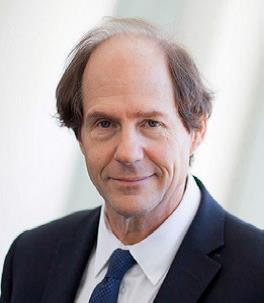Health nudges in the welfare state – potentials and limits?
Venue
Aalborg University, Copenhagen
A.C. Meyers Vænge 15
2450 København SV
Kantinen - the canteen
Moderator panel
- Thomas Ploug, professor, member of The Danish Council of Ethics
- Søren Brostrøm, director general, Danish Health Authority
- Eva Michelle Burchard, consultant, Local Government Denmark
- Erik Jylling, CEO Health Politics, Danish Regions
- Søren Holm, professor of ethics, University of Manchester
- Torben Jørgensen, clinical professor, University of Copenhagen
 Professor Cass R. Sunstein is the acclaimed author with behavioural economist Richard Thaler of the book Nudge - Improving Decisions About Health, Wealth
Professor Cass R. Sunstein is the acclaimed author with behavioural economist Richard Thaler of the book Nudge - Improving Decisions About Health, Wealth
and Happiness where they coin the concept of nudging. Nudges are attempts to shape individuals’ context of choice with foreseeable effects on the individual’s
behavior while at the same time preserving that individual’s freedom of choice. In the health area this popular but also contested idea translates to the notion that authorities may mildly “nudge” citizens in a more healthy direction without infringing their personal freedom. Cass Sunstein has advised President Barack Obama whereas Richard Thaler has been involved in the development of UK Prime Minister David Cameron’s “nudge unit”.
Programme
| 16:30 - 16:45 | Introduction and welcome |
| 16:45 - 17:30 | Presentation by Prof. Cass R. Sunstein |
| 17:30 - 18:30 | Debate – questions from the panel and audience to Prof. Cass Sunstein |
Cases for debate
Default screening programs
One example of nudging is the use of default models. For instance, in Denmark, 50-74 year old
citizens are by default enrolled to participate in colorectal cancer screening programs, even
though it is not obvious that the benefits of participation outweigh the costs to everyone.
Citizens are free to decline, but it is well known from nudging studies that default models tend
to be “sticky” – often, participation in default models happens without reflection. One reason
could be that people have great faith in the beneficial nature of what is recommended by the
authorities. In Denmark, the citizens’ trust in the authorities is often described as unusually
high. But given this trust, and given the ambiguity about the benefit of participating, ought the
Danish authorities not to be particularly hesitant about employing communication strategies
with nudging effects?
Health prevention campaigns
When it comes to exercise, smoking or the consumption of alcohol, the evidence of harm and
benefit is clear. The Danish population is following the international strong upwards trend
concerning obesity with profound negative effects in terms of personal and societal costs and
quality of life. But for various reasons, politicians in Denmark and elsewhere are hesitant about
introducing hard legislation as a means of addressing obesity problems. However, various other
strategies are employed in Denmark, including nation-wide information
campaigns and prevention
programs often targeting groups with low average health, in the name of equality.
Critics, however, point out that these campaigns are inefficient; that moralizing from the
“health mafia” has gone too far; and that precisely the least healthy are often harmed more
than benefited because they lack the will and resources to change their life style, not the knowledge.
Instead, some suggest, one ought to nudge people. The authorities might, for instance,
do more to make car-driving more cumbersome or they might try to frame physical activity as
high-status. Is “benign manipulation”
the way forward for prevention in egalitarian societies?
Vaccination
To ensure group immunity, there is a strong societal interest in achieving a high rate of
vaccination. Because of frequent suspicions about side effects, however, many are hesitant
about enrolling themselves or their children in national vaccination programmes. This increases
the risk of outbreaks of diseases like measles and cancers caused by viruses. Ought the
authorities to push harder to persuade everybody to participate – and using what means?
Genetic risk information
A revolution in the area of genetic analysis means that also people with no known hereditary
condition may now have their genes analyzed for a mapping of genetically based sensitivities
related to e.g. cancers, diabetes or heart disease. Thus, such data may encourage people to
pursue healthier life styles. The data, however, is very uncertain and may lead to unfounded
concern or a false sense of safety. Should the use of predictive testing nonetheless be
encouraged as a way of nudging people to live more healthy lives?